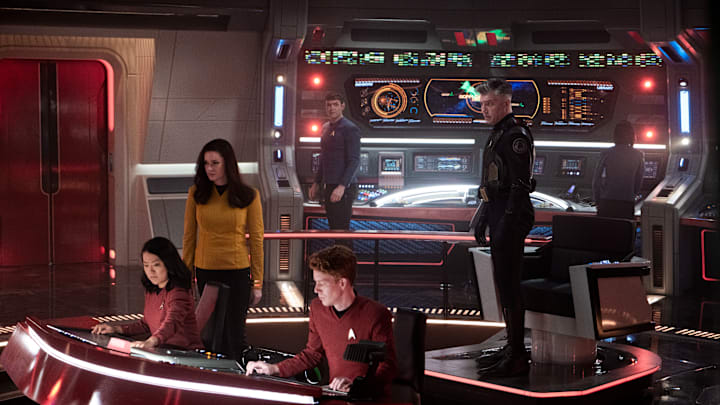Star Trek is nearing 60 years old. In 2026, the franchise will hit that magical mark, making it one of the most impressive franchises of all time. It's sustained decades of ups and downs, making many actors and actresses into stars, and cementing the fandom of millions upon millions of people. It's the type of series that speaks to a grandparent, parent, and child of a family, unifying so many with its stories.
Stories that stretch from 1966 to now, weaving in and out of various series and films, respecting what's come before and what will come after. That depth of storytelling has allowed so many to pass down their love of Star Trek to the generations, almost gifting it to newer generations.
The respect that it has for itself, and what has come before is one of the more major selling points of the series. It speaks to so many that this entire universe has a beginning and follows through so many different eras. It's vital that this thing, that this canon, is respected and tended to. It's one of the most important aspects of the franchise.
Dismissing it and breaking it would be catastrophic. So many fans have invested in the series because it all connects. You can find a point on the timeline and watch it play out. How cool is that? Being able to connect everything is vitally important to the franchise's success, and respecting it shows that you understand the Star Trek fandom.
Some believe that canon shouldn't matter, that it can get in the way of a good story and if it does, it should be discarded. That's not true. Dismissing canon makes Star Trek less compelling. For instance, Strange New Worlds is the flagship of the franchise currently. In the timeline, it's set before the Original Series.
Its leading character is Christopher Pike, a man we all know is doomed to have a traumatic future that he can't avert. He knows this is going to happen too. The knowing dread that hangs over his head and his decisions to improve life's whimsy is commendable. He's a man with a fate he can't escape, but he hasn't let it turn him cruel or cold. He's the kind of leader we all wish we had in real life.
Yet that impact would be significantly minimized if we decided that Pike should avoid his terrible fate. All because some think there's a "better" story to tell.
If you can't tell a gripping and impactful story with the history of Star Trek "weighing" you down, then you shouldn't write for Star Trek. If you can't keep dates and people in order, then you shouldn't be part of the franchise. If you're such a shallow and uncreative figure, that you can only do the same storyline and plot points over and over again, then you shouldn't be a part of Star Trek.
The weight of its canon has galvanized the franchise and disrespecting canon not only insults those who came before to help build that history, but also the fandom who have come to embrace its many paths and branching plot lines. It is one of the core elements of the franchise and doing anything to harm it, all because you don't like how a character turns out is a great way to kill interest in something far older than many of its fans.
